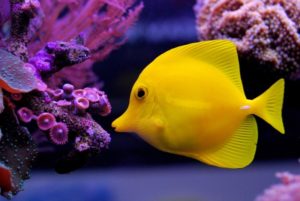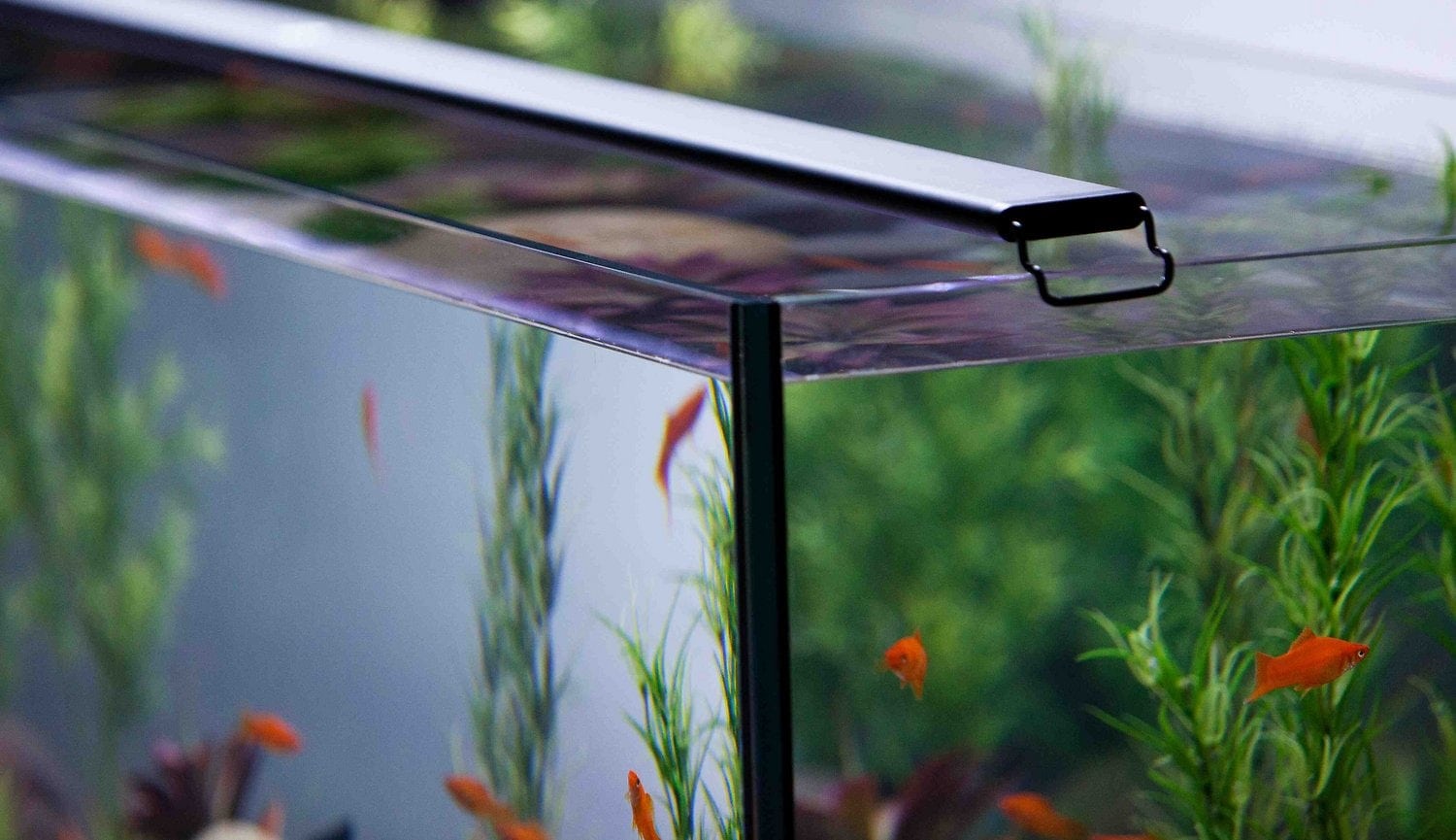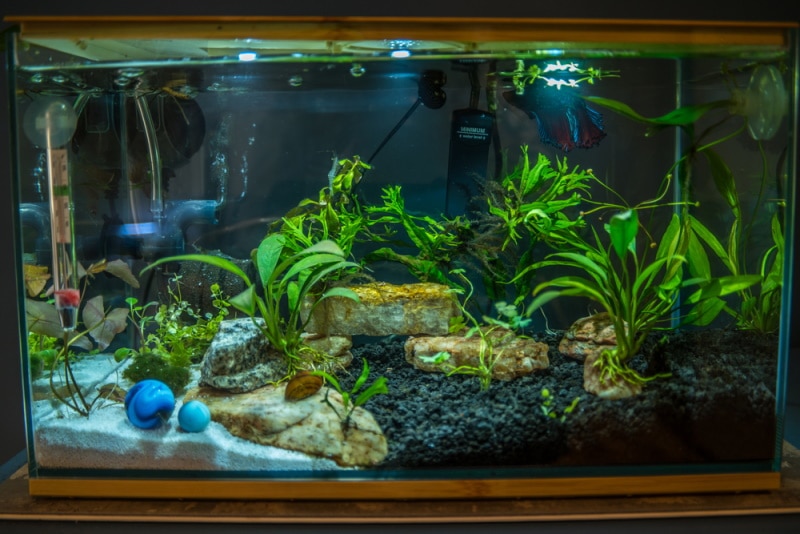How Long Do Guppies Live? Average Lifespan, Data & Care

Updated on
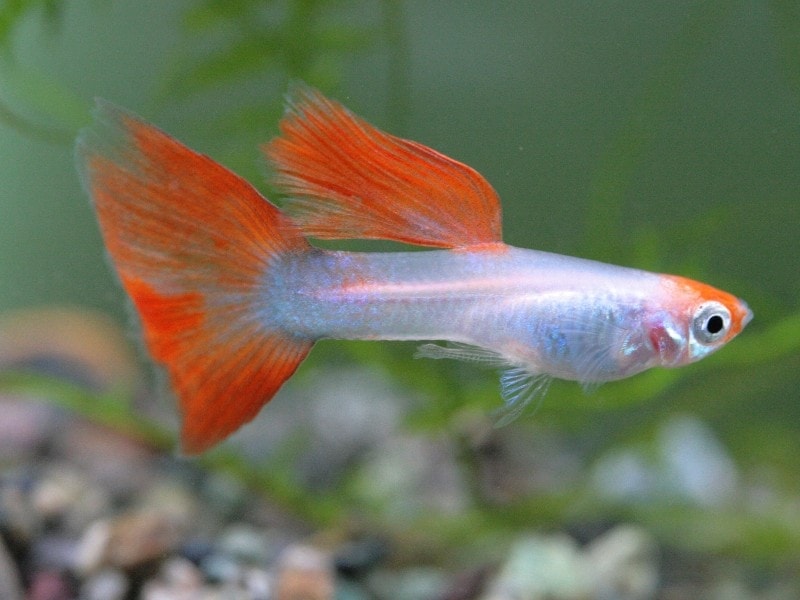
Guppies are neat little fish that make for perfect beginner pets, and they’re awesome for advanced fish owners too. They love to live in schools and move around.
One common question that many aquarium owners have is what is a Guppy’s lifespan in a tank? They live an average of 2 years. Furthermore, how to increase it? Let’s dive in and answer the question in detail along with some important tips and information to help you.
What’s the Average Lifespan of a Guppy?
Guppies are hardy fish, if you take good care of them, they can actually live for a good few years. Depending on the tank, water quality, food, stress levels, and other deciding factors, a guppy can live anywhere up to 5 years.
Most guppies’ lifespan is anywhere from 1 to 3 years, with 2 years being the average and 3 years being very impressive. Guppies that live for up to 5 years are the ones that have been taken care of the best, plus there is some luck involved when it comes to living to a super old age.
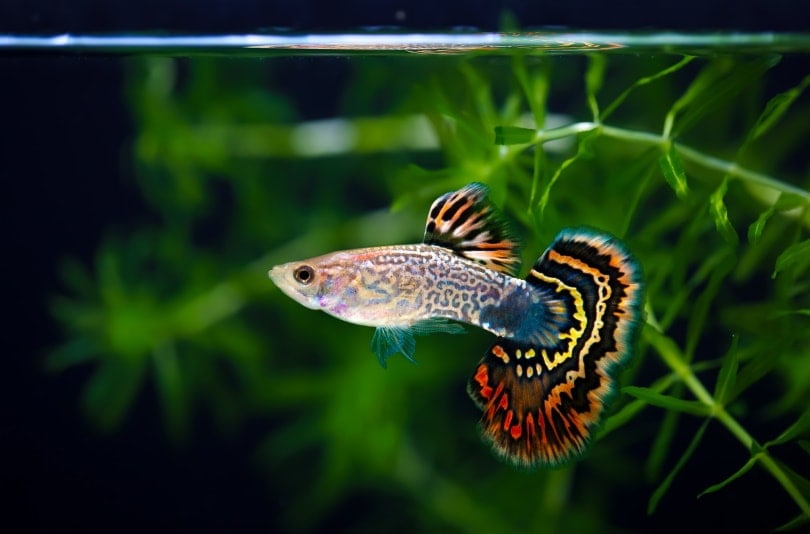
How Long Do Guppies Live In A Tank?
When it comes to living in the wild versus living in a tank, there are many factors which can come into play. Generally speaking, a guppy will live longer in a tank without natural predators. If you take great care of your guppies, you can expect them to get around 2 years old in your aquarium.
However, guppies are usually already fully grown upon purchase, thus making it difficult to judge their age. If you have a guppy that only makes it a few months, it may not be your fault. You could have simply bought an older fish.
The problem here is that judging the age of a guppy that you bought can be nearly impossible.
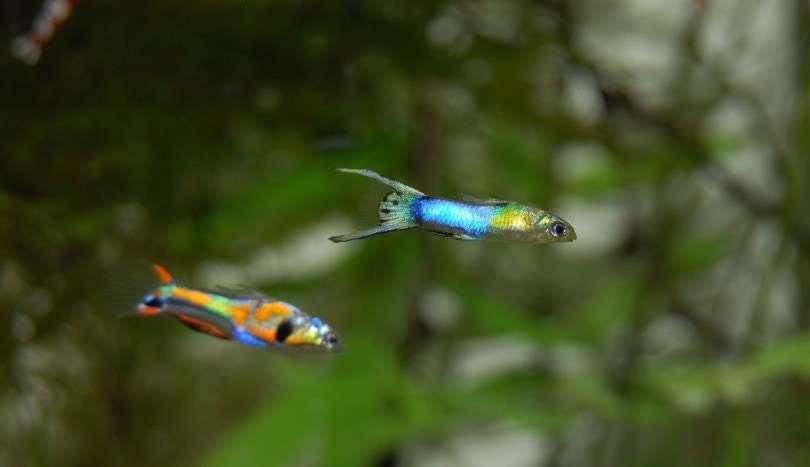
 Why Do Some Guppies Live Longer Than Others?
Why Do Some Guppies Live Longer Than Others?
The lifespan of a guppy will depend on how you take care of it. There are several things that you can do in order to ensure a maximal lifespan for your precious little guppies. Follow the tips below and you and your new guppies will live a long and happy life together.
1. Food
You need to eat, we need to eat, and guppies need to eat too. First of all, when it comes to a schedule, you should feed adult guppies twice per day, once in the morning and once in the evening.
Be careful not to over feed them as this can cause some fairly serious problems. To make sure that you are not over-feeding your guppies, only let them eat what they can chow down in 5 minutes, but no more. This is both to prevent the guppies from eating too much as well as to keep excess foods from rotting in the aquarium water and polluting it.
When it comes to the types of foods that you feed your guppies, they are quite hardy and definitely are not picky. They are omnivorous fish so they will mow down virtually anything in front of them that can fit in their mouths.
Be sure to keep your guppy on a very diverse diet as they do best when they have a steady mix of proteins, vitamins, minerals, and other nutrients. Unlike some other fish that only eat plants or meat, guppies will eat it all.
You can give your guppies food in the form of fish flakes and they will do just fine, but they will definitely benefit from some live foods and other variation a few times per week. Other than generic fish flakes, you can feed your guppies things like hard-boiled egg yolks, baby brine shrimp, normal brine shrimp (we have covered a separate post here on hatching brine shrimp), mosquito larvae, blood worms, daphnia, and other such foods.
You can go with live foods or freeze dried foods as well. The trick here is to provide your guppies with a healthy and steady diet.
2. Water Quality & Parameters
While guppies are fairly resilient and durable fish, they do need pretty constant water parameters and really clean water if you expect them to live past 1 year of age. Water quality will help keep your guppy healthy by preventing algae growths, preventing the growth of harmful bacteria, preventing chemical buildups, and maintaining a healthy level of oxygenation.
Get yourself a good water filter if you have a bunch of guppies and plants. A 3-stage filtration system will remove waste and debris, breaking down ammonia, nitrates, and nitrites, and removing any other pollutants and odors.
Engaging in proper filtering practices will ensure that you have healthy guppies. Keep in mind that you also need to do regular water changes, with around one-quarter to one-third of the water being changed each week. Also, you need to remember to clean the filter on a regular basis as well.
Guppies like fairly hard water with a neutral pH level around 7.0. Furthermore, if you really want to ensure that your guppies live for a long time, a protein skimmer will remove protein based waste from the water, plus you can get yourself a UV sterilizer too. Moreover, you can even invest in an air pump for oxygenation.
Finally, guppies can actually live in both fresh water and salt water, but actually tend to do the best in brackish water. So, for every 5 gallons of water in the aquarium, you should add 1 tablespoon of aquarium salt.
Do not use regular table salt! It will kill your fish!
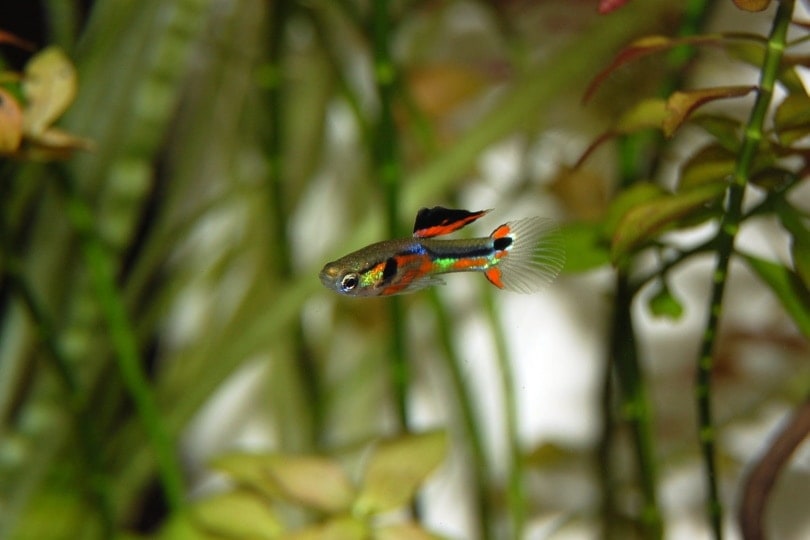
3. Males, Females, & Tank Mates
Guppies are very peaceful fish and will avoid confrontation with other fish. That being said, they are small and quite defenseless, so you should not keep them with bigger carnivorous or omnivorous fish. Guppies do make for easy prey, so make sure that you aren’t just feeding your other fish when adding guppies into the mix.
These fish do best in species specific tanks, which means only having guppies. Aside from some snails or small herbivorous or very peaceful omnivorous fish, having tank mates might not be the best idea.
Males and females will usually do just fine with one another, so there is really no need to worry there. Also, when they are in good water conditions, guppies will often breed even without encouragement from the owner.
4. Water Temperature
Guppies tend to do the best in water temperatures of around 75 degrees. They can tolerate water temperatures up to 80 or 82 degrees or as low as 70 or 68 degrees, but they won’t live as long as they would in 75 degree water too (we have covered temperature for Guppies in more detail on this article).
Guppies living in warmer waters tend to get bigger and eat more, but due to their increased metabolic rate and complications associated with heat, they will die faster. On that same note, colder waters can slow your fish down, reduce its metabolic rate, and often causes illnesses which can and often do kill guppies.
The takeaway here is to keep the water at a nice 75 degrees and you will be giving your guppies the best chance at a long life. More on heaters here.
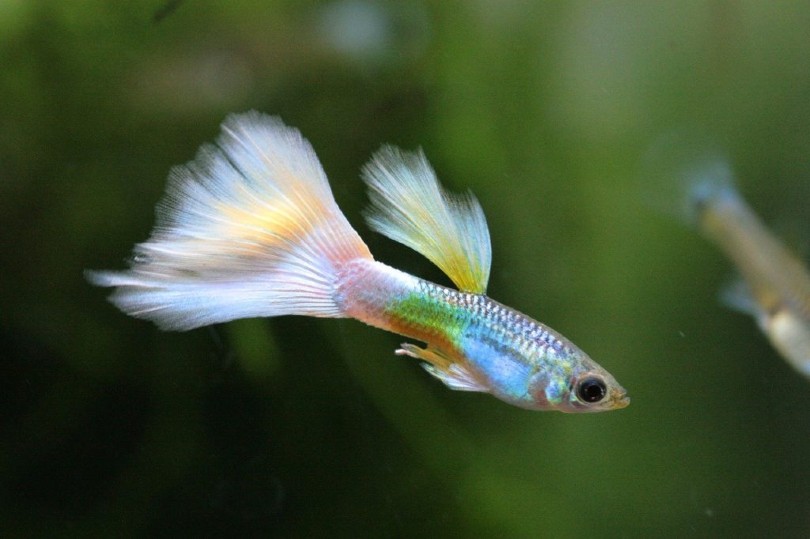
5. Other Considerations
Another thing to help your guppies live for longer is to keep their stress level to a minimum. This means having good lighting conditions, keeping the water parameters stable, keeping water temperatures from changing, keeping them on a regular diet, and not overcrowding the tank.
Stress can be one of the biggest killers of guppies, so just make sure to have a big enough tank and keep things from fluctuating. Also, guppies like plants to swim around and hide under (we have covered some good suggestions here).
Conclusion
We hope we have been able to answer your Guppy Lifespan questions. At the end of the day, if you follow all of our tips, you should be able to keep your guppies alive for at least 2 years, if not longer. Simply give them their best chance. That is all you can do!
Featured Image credit: PxFuel

 Why Do Some Guppies Live Longer Than Others?
Why Do Some Guppies Live Longer Than Others?
